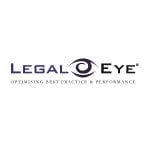On 1 August 2022, the Economic Crime (Transparency and Enforcement) Act came into force. Designed to tackle the UK’s dirty money problem, the legislation gained momentum following Putin’s invasion of Ukraine.
One key part of the legislation was the introduction of a new Register of Overseas Entities (ROE), which forced the foreign owners of UK companies to declare and verify their identities. The government believed that the new register, alongside other AML measures, would make it harder for foreign criminals to launder money through the UK, thus hindering terrorist financing and other financial crimes.
In a recent blog, Companies House has confirmed further company law changes will be introduced under the second Economic Crime Act, which is due to come into effect in March 2024. The latest changes apply to anyone setting up, running, owning or controlling a company in the UK and include:
- Greater powers to query information. Companies House will be able to scrutinise and reject information that seems incorrect or inconsistent with information already on its register.
- The ability to remove or flag data. Where appropriate, Companies House will be able to remove information or add annotations to flag any potential issues. This is a significant change as, at present, amending information on the register is extremely difficult.
- Stronger checks on company names. This has been a real problem in the fight against economic crime, with some dishonest companies managing to escape detection by using fake names. Registered directors have included Mickey Mouse, Donald Duck and Adolf Tooth Fairy Hitler1. Changes will enable Companies House to carry out additional checks on any company name entered into the register, while prohibiting the inclusion of names that include a “computer code”, which could exploit vulnerabilities in some systems.
- New rules for registered office addresses. Introduced to prevent the use of PO Boxes, all companies will need to have an “appropriate address” as their registered office address. The address must be able to acknowledge the delivery of documents to the company.
- A registered email address requirement. In addition to an appropriate postal address, all companies must provide a registered email address to which Companies House can send communications. This information will not be made publicly available.
- Confirmation of lawful purpose. The new rules will require directors to declare that they are forming the company for a lawful purpose. Each year the company must reconfirm that all future activities will be lawful.
- Data sharing. Companies House will be able to share data with other government departments and law enforcement agencies.
While Companies House hopes that the new rules will improve the quality and reliability of its data, and prevent abuse of the register, it accepts that the changes will “not necessarily stop fraudulent information being accepted and published”. As such, it is planning additional changes, including ID verification, to be introduced at a later date. Furthermore, the UK Government is also consulting on plans to publicly share more information on trusts and their beneficial owners, including information held within the ROE.
Failure to Prevent Fraud Offence
In addition to the new powers given to Companies House, the government has also created a new failure to prevent fraud offence. According to a government policy paper:
- An organisation will be liable where a specified fraud offence is committed by an employee or agent, for the organisation’s benefit, and the organisation did not have reasonable fraud prevention procedures in place.
- It does not need to be demonstrated that company bosses ordered or knew about the fraud.
- The offence will apply to companies and incorporated public bodies qualifying as large under the Companies Act 2006.
Companies will need to demonstrate that they have ‘reasonable procedures’ in place to defend against the new offence.
Robust risk and compliance policies and processes have never been more important
With money laundering estimated to cost the UK economy more than £100bn each year, 2tougher measures are undoubtedly needed. Nevertheless, the changes to the Economic Crime and Corporate Transparency Bill will create additional risk and compliance burdens for UK businesses and their legal representatives.
A company-wide fraud risk assessment should now be a priority for anyone affected by this legislation. This includes revisiting any current fraud risk assessments to ensure they are up-to-date and cover the latest changes. Policies and procedures should also be reviewed to ensure they include appropriate guidance about the penalties for non-compliance and, user-friendly employee training is strongly recommended.
Legal Eye works with law firms, legal services providers and other corporate industries to ensure compliance and optimise performance. Our extensive knowledge of the law and regulations will ensure your business is compliant and your processes sound. Our advice is clear and practical, and we pride ourselves on our exceptional customer service and unbeatable quality of work. Contact us on +44 (0)20 3051 2049 to learn more.
This article was submitted to be published by Legal Eye as part of their advertising agreement with Today’s Conveyancer. The views expressed in this article are those of the submitter and not those of Today’s Conveyancer.




















